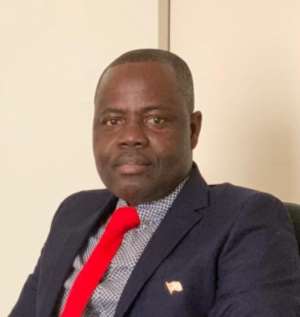
During a tense football match between Ghana and another nation, striker Asamoah Gyan missed a goal opportunity that ignited frustration among fans. But legend Abedi Pele offered a humbling insight: what looks easy from the stands is far more difficult on the field. His perspective echoes far beyond the pitch—it mirrors our nation’s struggle with leadership, expectation and reality.
Ghana is a country blessed with wisdom, rich traditions, and abundant resources. Yet for many, life feels like a relentless fight against hardship. How can a land so endowed leave the vast majority of its people trapped in poverty?
A major part of the answer lies in a political system fractured by polarization. Our leaders are not inherently malicious—but over time, vision has been compromised by tribal loyalties, personal ambition, and entrenched opposition. Where there should be cooperation, there’s rivalry. Where there should be national service, there’s often self-preservation.
Today, good ideas are buried if they come from the “wrong side.” Laws are crafted not for the public good, but to entrench privilege and power. Political vision has been distorted, divided, diverted, and diluted by partisanship. And so, the proud legacy of nationalism, once the force that united nations and inspired freedom movements has been reduced to slogans rather than substance.
What should have been a mission to lift Ghana has become, in too many quarters, a mantra of “loot and share.” Once, our heroes like Yaa Asantewaa and Kwame Nkrumah risked everything to serve their people. Today, some leaders risk the people’s future for private gain. Morality and the rule of law are fading, replaced by dishonesty, cronyism, and unchecked self-interest.
Does legacy still matter? It must. Whether it is the legacy of Nana Addo and Dr. Bawumia or of President Mahama, history will judge not by promises but by impact. Leadership will be remembered either as an act of service or as a season of exploitation.
The nationalism of today must reclaim the strength of yesterday. When rooted in empathy, inclusion and collective pride, nationalism becomes a banner that unites and uplifts. But when driven by fear, ego, or exclusion, its cost is immense—conflict, inequality and division.
National identity and cultural pride are eroding. Celebrations of our shared heritage, language and values now compete with tribal politics and politicized media. Politicians speak of unity but practice favoritism, choosing foreign luxuries over local progress. The dream of a common destiny has been replaced by cynical survivalism.
The consequences are visible everywhere: – Infrastructure serves political interests, not national needs – Development funds disappear into inflated contracts – Schools are built without teachers well paid and hospitals without care. Corruption now normalizes inequality, while public trust withers
Skilled citizens are either demotivated or driven abroad. Meanwhile, development becomes a weapon—rewarding the loyal, punishing the critical. But Ghana cannot rise by leaving its people behind.
Conclusion: Reclaiming Our National Soul
It is time to return to the heart of true leadership. One rooted in justice, inclusion, service and legacy. Ghana’s story is not yet finished. Our greatness lies not just in our history, but in our ability to learn from past mistakes and rebuild the country for a better future.
We must reclaim the pride of nationalism—not as a weapon, but as a promise. A promise that leadership serves the many, not the few. That our identity binds us, not breaks us. That our culture develops us not divide us. Legacy still matters not just for how leaders are remembered, but for how citizens live united and developed.
Let us rise, not through slogans, but through action. Not through division, but through unity. Because when Ghana wins, the citizens win together and when Ghana fails, we all suffer the consequences. Legacy in nationalism makes every citizen feel hopeful and live victorious.
By
Gaddiel R. Ackah
[email protected]
U.S. Navy veteran. Lives in U.S.A.
Social Advocate for economic independence, spiritual growth and ethical leadership. His work spans education, business, spirituality, leadership and creative arts, making him a multifaceted influencer.
Author of Many Leadership and Inspiring books.
Competent Leadership: Becoming Successful Our Happiness. Some Choices Matter Respect Matters Faith Wipes Tears The Power of Faith


